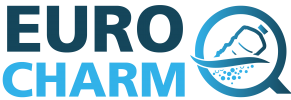The EUROqCHARM methodology

Overall methodology
The EUROqCHARM methodology is focused around a multi-stakeholder approach to identify, optimise and validate cost-effective methods and recommendations for monitoring strategies focusing on all environmental compartments (water, soil/sediment, air, biota) and targeting a broad size spectrum of plastics (nano-, micro-, macro-). To efficiently approach the Work Programme, EUROqCHARM is organised into six work packages (WP), in a structure that promotes flows of knowledge, expertise and people, and facilitates the engagement of multiple stakeholders and key actors driven by plastic pollution problem. EUROqCHARM will collect and review currently used methods and guidelines (WP1), validate and assess the feasibility of methods (WP2), develop blueprints for monitoring standards and formulate recommendations for existing policies revisions (WP3), and build capacity (WP4). WP5 will ensure close communication with stakeholders and end-users throughout the project period, and project results will be demonstrated and disseminated widely. Project coordination, progress and the successful delivery of project results will be managed by WP6.
Throughout the project duration, EUROqCHARM will engage with stakeholders across all work packages from the identification of requirements for analytical detection of plastics in environmental samples (WP1) to discussion on the criteria for standards development (WP2) and recommendations for policy and legislation (WP3). Furthermore, this close collaboration will strengthen international cooperation for data and information exchange including capacity-building for Member States that need it (WP4) and dissemination to the wider scientific community and general public (WP5).
EUROqCHARM will bring together stakeholders from industry, governing bodies, regulators, standard bodies and more to cooperate and participate in the dialogue, decision making and implementation of solutions woven throughout the project. To this end, stakeholders have been involved during the proposal inception stage supporting the development of various WPs. During the EUROqCHARM implementation phase, stakeholders will engage with: constructive dialogues encompassing state-of the-art methods (WP1), analytical instrumentation (WP2), data reporting (WP3), optimisation and validation of harmonised methods (WP2), as well as the development of blueprints for monitoring standards (WP3) and building capacity for geographically distributed plastics monitoring activities (WP4).
More information on each Work Package:
